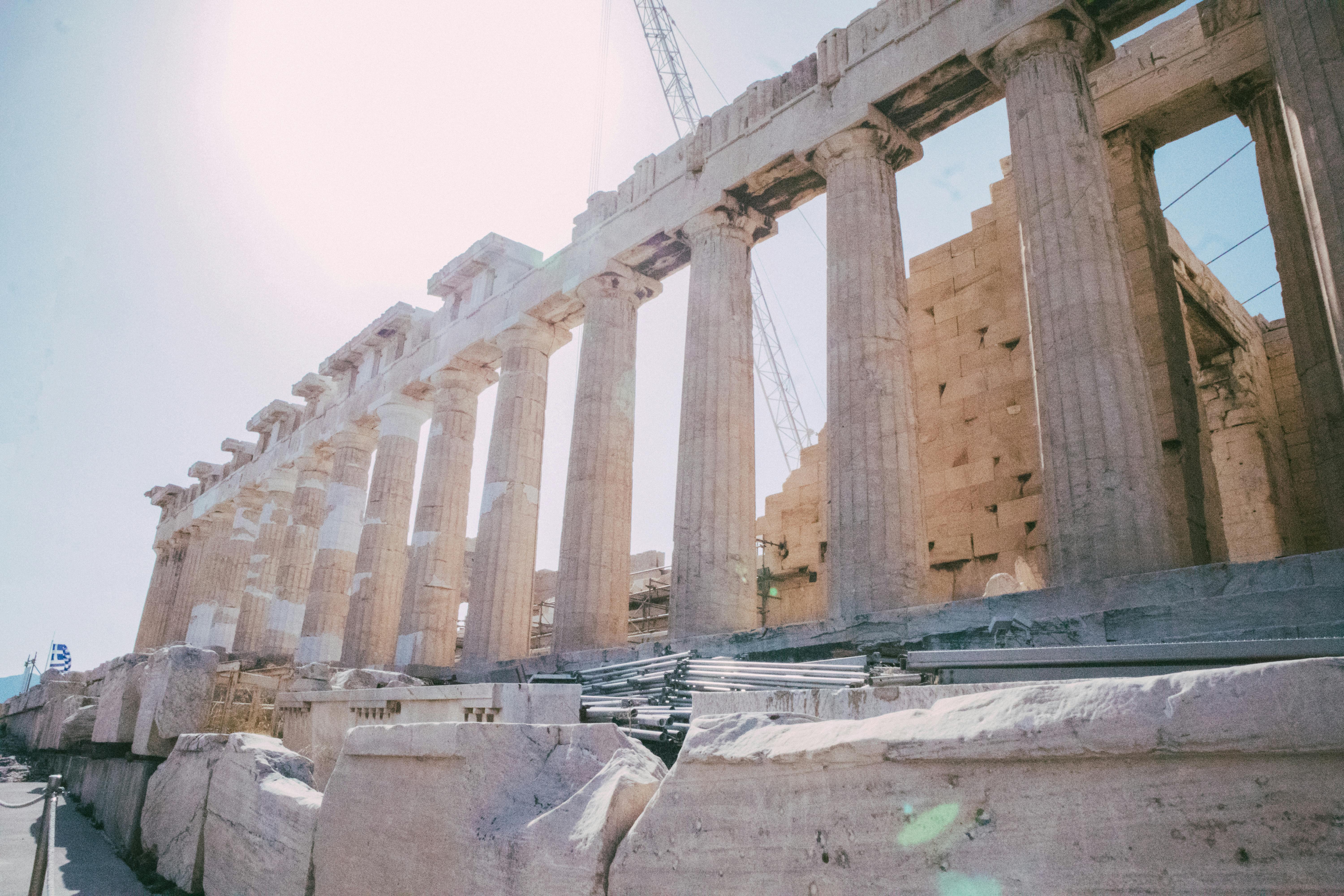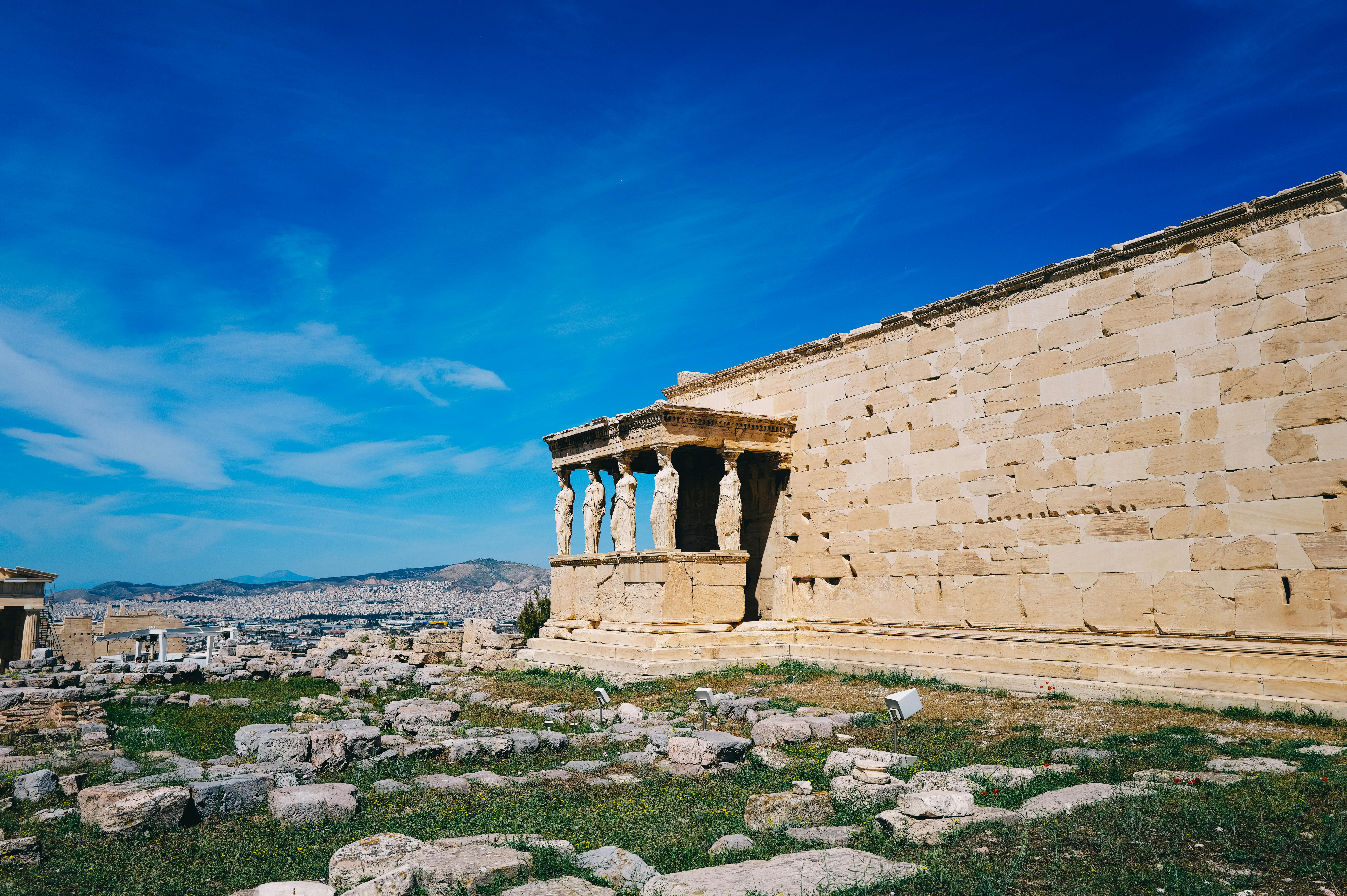Athens: Why the World’s History Capital Still Defines Civilization
If you asked me to name the most influential city on Earth—one that’s been both a star and a scar in world history—my answer wouldn’t waver: Athens. It’s not just another Mediterranean stop for eager cruise passengers or someone’s hazy high school memory of mythology class. Athens is, to borrow a phrase, “history’s capital.” It’s where democracy (most of it, anyway) took its first breath, theater morphed into the very foundation of the performing arts, philosophy found a loud, disruptive home, and yes, where Olympic glory wasn’t just a television event but a demonstration of community spirit, strength, and creative innovation1.
My first time in Athens broke every expectation and then some. Picture a jet-lagged, degree-wielding historian hunched over battered street maps, convinced he’d instantly “feel” 2,500 years of legend in every stone. Instead, what struck me most was the chorus of contradictions: the graffiti and the grandeur, stray cats rubbing against crumbling marble, the Acropolis looming not as an aloof relic but as a watchful neighbor with a tangled backstory. Honestly, you can’t walk a hundred meters without running smack into another layer of civilization, or—oddly enough—a surprising supermarket chain.
As Greece’s sprawling capital, Athens is Europe’s oldest capital city, continuously inhabited for over 3,400 years. The greater metropolitan area now hosts more than 3 million people—a testimony to its enduring importance as both a cultural crossroads and a modern metropolis2.
The Origins of Athens: Legends, Layers, and Hard Evidence
Let’s admit it—everyone sort of wants the origin story to read like a Hollywood script. The myth of Athena and Poseidon vying for the city’s favor, the olive tree springing magically from bedrock, the notion of a people chosen by a goddess—the whole nine yards3. But real history is messier. I’m partial to the version that melds mythic symbolism with stratified dust because, as any good archaeologist will tell you, ancient Athens was already cosmopolitan before most European cities were even on the map.
Archaeological digs in the Kerameikos district and elsewhere confirm continuous settlement since at least 3,000 B.C.4—making Athens one of the world’s oldest urban centers. The “city-state” concept evolved slowly, shaped less by some manifesto and more by the waxing and waning fortunes of local clans, Dorian invaders, volatile trading relationships, and, inevitably, the gods and political machinations that animate Greek storytelling.
Unlike Rome or Paris, Athens has always been a place where “old” and “new” weren’t in opposition. Instead, the city’s defining quality has been its ability—sometimes begrudgingly—to swallow new ideas, break tradition, and reinvent itself again and again, all while keeping its heart in the past.
Athens: Birthplace of Democracy (Well, Almost)
Here’s where I need to clarify: the Athenian democracy everyone gushes about? It was, by today’s standards, radically exclusive. If you weren’t male, a free citizen, and of Athenian parentage, tough luck—you were left out. But—and this is a big but—the experiment that started in the shadow of the Acropolis in 507 B.C. under Cleisthenes (who absolutely deserves an edgier Netflix series, by the way) shook the globe to its core5.
“The greatest legacy Athens gave to the world was the right—however fragile—for people to participate in their own governance.”
What always gets me is that, even in classical Athens’ “golden age,” citizens debated, protested, and questioned their leaders, sometimes with more guts (and wit) than I see on modern city council Zoom calls. That push and pull? It’s not just ancient history—it’s a template for every civic experiment since, even if, as we’ll see, Athens itself has sometimes struggled (even recently) to live up to its own ideals6.
Cradle of Art, Drama, and Philosophy
It’s easy to toss around the phrase “cradle of civilization” until it loses meaning, but if you love philosophy, literature, or the arts, Athens is where your journey really begins. I remember standing in the ancient Theater of Dionysus, chills running down my spine as a local guide recited lines from Sophocles—right where they were first spoken 2,500 years ago. That sense of creative continuity? Completely, absolutely overwhelming.
- Theater: Athens invented drama. Period. The City Dionysia festival saw playwrights like Aeschylus, Sophocles, and Euripides compete for civic glory, shaping everything from modern storytelling structure to Netflix’s endless parade of antiheroes7.
- Philosophy: Socrates, Plato, and Aristotle didn’t just pose questions—they redefined what it meant to “know.” Major Western concepts about logic, ethics, and politics took root here, in bustling marketplaces and shady groves8.
- Art & Architecture: The Parthenon wasn’t built simply to be beautiful (though, seriously, it’s staggeringly so); it was a defiant assertion of Athenian identity, cultural ambition, and technical prowess—the city staring down the world and daring it to catch up.
In my experience, the best way to “get” Athens’ creative legacy is to spend a few hours wandering its lesser-known rooftop galleries or sitting in a slant of sunlight at the Ancient Agora, arguing Plato with passionate locals.
Don’t just stand outside the Acropolis; explore its world-class museum. The level of detail and context—complete with 3D reconstructions and digital storytelling—brings millennia-old art and inscriptions alive in a way that wandering the site alone never could.
Modern Athens: Ancient Spirit, Urban Pulse
Now, here’s the paradox. Long before Athens hosted the Summer Olympics or became an Instagram stop, it struggled—sometimes fiercely—to reconcile its ancient bones with rapid, often chaotic urban expansion. Post-World War II reconstruction fueled sprawl, and the city absorbed waves of refugees from Asia Minor, the Balkans, and beyond. Pollution and congestion hit crisis levels by the 1980s.
Yet, Athens also claims some of the most striking urban renewal stories of any European capital. You see it in pedestrianized boulevards that connect archaeological sites with lively café culture, in the street art that revives tired facades, and—crucially—in the resilience of the Athenians themselves. Anyone who doubts this hasn’t seen the city flex during a crisis, from economic meltdowns9 to a pandemic lockdown that felt (for a moment) eerily reminiscent of the city’s long-ago sieges.
“Athens is a city that constantly reinterprets its own narrative—a place where history is both an anchor and a launch pad.”
What fascinates me is that Athens’ biggest urban strengths—its walkability, sense of community, and energy—sprang not from top-down masterplanning, but from a kind of organized chaos. I’ve seen neighborhoods like Exarchia, Koukaki, and Psiri swing between periods of gritty activism, economic uncertainty, and full-blown creative renaissance, sometimes all in the same week.
A Timeline Snapshot: Athens from Antiquity to Today
| Era | Key Events | Cultural Impact | Modern Echoes |
|---|---|---|---|
| Bronze Age (c. 3000–1200 B.C.) |
First settlements on Acropolis and Agora | Urban origins; religious sanctuaries | Foundations for sacred, civic space |
| Classical Period (5th–4th c. B.C.) |
Persian Wars, Golden Age, Democracy | Theater, philosophy, architecture | Cultural reference point for the West |
| Roman to Byzantine (146 B.C.–1456 A.D.) |
Roman Conquest, Christianization | Libraries, legal systems, churches | Multi-faith, multi-layered cityscape |
| Modern Era (1834–present) |
Greek Independence, Capital status, Olympic Games (1896, 2004) | Mass migration, urban renewal, tourism | Global travel destination, creative hub |
Notice the constant: Transformation. Destruction and rebirth. Athens is less a museum than a palimpsest where every layer asserts, “This city belongs to the living as much as the dead.”
According to city records, 2019 welcomed more than 6 million international visitors to Athens—a staggering number, especially for a city often seen (unfairly) as a one-stop Acropolis detour10. The reality? Athens offers a richer, more vibrant urban experience than ever before.
Visiting Athens: Essential Travel Strategies for History Lovers
Let me be blunt. No itinerary or Top Ten list I’ve seen (and I’ve seen more than most) does Athens justice. My advice? Read them, then ignore them. Instead, think of Athens as a living archive—each district a new exhibit, each conversation a footnote.
- Plan seasonally, not just by price. Spring and fall mean fewer crowds, easier access to the big sites, and—critical—temperatures that won’t leave you longing for a cold cave on the slopes of Lycabettus Hill.
- Mix the icons with the overlooked. Visit the Acropolis at sunset, but don’t skip the Byzantine churches in Plaka or the anarchic energy of Exarchia’s street murals.
- Pace yourself, Greek style. Spend time in local cafés, linger over your food, and seize opportunities to join neighborhood festivals. Greeks approach daily life in a way that Western planners (myself included) often envy: slow, layered, and deeply communal.
Looking back, it’s the conversations with bookstore owners or the scent of wild thyme in the National Garden—not a checklist—that made Athens unforgettable for me.

Athens’ Global Legacy: Why It Still Matters in the 21st Century
We need to be honest: Sometimes, the talk about “ancient wisdom” in modern policy discussions feels more decorative than substantive. And yet, I’ve seen—again and again—how Athens isn’t just a passive logo for democracy or inspiration for marble-laden tourist dreams. It’s a real, contradictory place whose foundational experiments still shape global debates from Washington to Beijing11.
The U.S. Founding Fathers studied Athenian democracy as they drafted the Constitution. Even now, Greek words like “democracy,” “philosophy,” and “politics” anchor international legal and academic vocabulary12.
Three Ways Athens Still Defines the Modern World
- Political Innovation: Representative government, mass protest, and the ideal (if not always the practice) of civic dialogue began here and continue to inspire movements worldwide13.
- Cultural Exchange: The fusion of Eastern and Western traditions—visible in Athenian food, art, and architecture—remains a model for 21st-century multicultural cities.
- Tourism Model: Athens forged the blueprint for “destination cities” that double as living classrooms, using culture to drive sustainable tourism growth14.
“Athens isn’t just the capital of Greece—it’s the capital of possibility. Every visitor takes home more than they expect.”
Athens in the Global Travel Lexicon
Today, Athens regularly ranks in top ten lists for urban “bucket list” trips15. But that’s just the travel magazine version. From my own experience leading small-group expert tours (and, let’s be real, sometimes desperately trying to decode Athenian traffic), I can testify: what sets Athens apart isn’t the scenery alone, but the ongoing interplay of old and new, local and global.
| Athens Superlative | Global Ranking | What Sets it Apart | Recent Data |
|---|---|---|---|
| Oldest European Capital | 1st | Continuous habitation since 3,000 B.C. | UNESCO World Heritage Reports2 |
| Ancient & Modern Olympic Host | 2nd ever (1896), Reprised (2004) | First modern Olympic city | International Olympic Committee16 |
| Best Value in Europe (2022) | Top 3 | Affordable food/hospitality, top public transport | Post Office Travel Money Report17 |
| Cultural Sites per Square Mile | Top 5 globally | Over 120 museums/sites in urban core | Greek Ministry of Culture10 |
Challenges, Controversies, and Ongoing Evolution
Before we romanticize Athens too much—believe me, I’m guilty of it—let’s address the harder truths. The preservation of ancient sites is a logistical and financial nightmare. Air pollution, mass tourism overload, and political unrest remain real. Not all Athenians embrace the ever-increasing cruise crowds, and debates over archaeological excavations versus urban development regularly spill into the local press18.
- How do you preserve a 2,500-year-old monument in the midst of a city that’s growing, evolving, and—sometimes—barely holding on?
- What gets saved, and who decides? The question is as political as it is cultural.
- How does Athens balance authentic experience with economic development and global demand?
“The ancient stones are incredible, but the city’s true marvel is its ability to create new stories even after millennia of upheaval and change.”
If you only see Athens as an open-air museum, you’ll miss the heartbeat. Real Athenian culture lives in the bustle of local bazaars, the late-night philosophical debates, and the tenacity to reinvent—a lesson global cities can’t afford to ignore.
Athens and the Future of Urban Heritage: What Comes Next?
With every trip back to Athens, I notice something different—a circle of teenagers debating music in the shadow of Roman ruins, retired artisans chatting over coffee in an ancient stoa, the quiet pulse of renewal pushing up through the city’s proud, battered stones. I’m convinced: Athens’ greatest legacy isn’t just what you see, but what you inherit as a traveler, thinker, or dreamer—a refusal to stop asking “what next?”
- The rise of digital mapping and virtual reality is now allowing millions to “walk” the ancient Agora or Acropolis from across the world, reshaping how we access and interpret heritage19.
- Sustainable tourism strategies developed in Athens (and piloted by local partners) are being studied by UNESCO as models for other heritage-heavy cities.
- Grassroots arts, activism, and culinary innovation are making Athens one of Europe’s best incubators for startup culture, not just museum-going20.
What really excites me is that Athens is now experimenting as much with the future as the past. If you’re debating whether to visit, explore, study—or just daydream about Athens—let me be blunt: This city doesn’t care if you come looking for ruins or revolutions. It gives both, in equal, unapologetic measure.
Ready to move beyond history class and discover Athens for yourself? Start planning your visit, seeking out not just the monuments but the voices, flavors, and textures of a living city that refuses to stand still. Every step is a step through time—yours to claim, yours to question, yours to continue.
References
Works Cited & Further Reading


